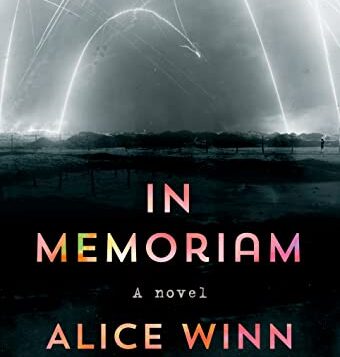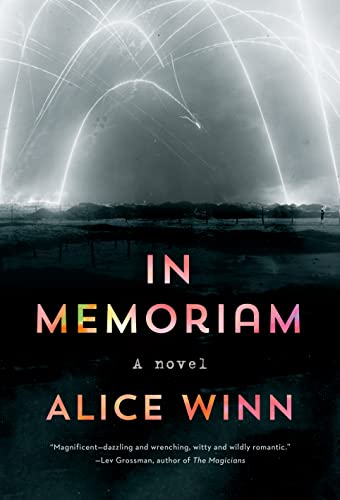IN MEMORIAM is an ambitious debut novel about the love between two English schoolboys who become soldiers during World War I. Henry Gaunt and Sidney Ellwood are friends in a public school, each secretly yearning for the other but unable to express it. When Gaunt enlists, Ellwood follows soon afterward. Amid the horrors of battle, they finally strike up a relationship.
The novel captures the atmosphere of elite public schools at the time, especially the rampant, barely concealed homoeroticism, often mixed with violence. Both Gaunt and Ellwood have sex with other boys on a regular basis, though they go to extreme lengths to hide it. Gaunt’s partner does so under the guise of beating him, Gaunt himself urging his partner to strike him. Their friends are aware of the many pairings in school, often teasing each other over their choice of partners.
The only prohibition seems to be any expression of love for another boy. This is the main cause of distress for Ellwood, who deeply cares for Gaunt and wants far more than is possible in this environment. The book’s early chapters are filled with Ellwood’s hopes when Gaunt comes closer, only to be dashed when nothing happens. Gaunt, meanwhile, struggles on several fronts. While concealing his feelings for Ellwood, he faces pressure from his half-German family to enlist and prove their English patriotism. While in town, two young women give him a white feather, the symbol of cowardice, and he angrily signs up for the army, lying about his age. This scene is repeated much later in the book, only now Gaunt, out of uniform but having seen the brutal reality of war, growls at the women.
 The novel shows the terrors of the Great War in awful detail, with body parts scattered and men suffocating from mustard gas. One officer, in a nod to the writer Saki’s death, is shot in the head while exclaiming “Put out that bloody cigarette!” Another scene shows the increasing terror of a German soldier as a seemingly endless wave of British soldiers races across the front, still advancing even as so many are mowed down, eventually fighting hand-to-hand and with bayonets. While helping to dig an escape tunnel, Gaunt suffers a terrifying panic attack as the support beams wobble.
The novel shows the terrors of the Great War in awful detail, with body parts scattered and men suffocating from mustard gas. One officer, in a nod to the writer Saki’s death, is shot in the head while exclaiming “Put out that bloody cigarette!” Another scene shows the increasing terror of a German soldier as a seemingly endless wave of British soldiers races across the front, still advancing even as so many are mowed down, eventually fighting hand-to-hand and with bayonets. While helping to dig an escape tunnel, Gaunt suffers a terrifying panic attack as the support beams wobble.
Through all this heaviness, however, there are moments of levity. Life in a prisoner of war camp, for instance, feels reminiscent of Hogan’s Heroes, with British prisoners rereading Adam Bede multiple times—it was the only book the Red Cross provided—and planning elaborate means of escape, hiding equipment in ingenious places while the German guards stumble about.
Literature permeates this historical novel. Ellwood quotes Tennyson frequently and writes poetry himself. The schoolboys call Rupert Brooke’s poetry “bone-chillingly soppy.” Winn’s title comes partly from Tennyson’s “In Memoriam A.H.H.,” an elegy to his friend (and possibly his lover) Arthur Henry Hallam, but also from the listings of the dead and wounded in the school’s newspaper, parts of which appear throughout the novel.
In Memoriam moves rather slowly in the beginning, establishing the setting of the school and the characters, including the eagerness of almost everyone to enlist and fight in the war. This enthusiasm continues in some men even after most of the fighting has ended. Visiting the school late in the war, several soldiers predict (correctly) that one of their former teachers would remark: “What wouldn’t I give to be twenty years younger!” The war scenes have an underlying energy and tension that speed up the story, especially as Gaunt and Ellwood consummate their love in this war novel that’s also a gay romance.
Charles Green, a frequent contributor to these pages, is a writer based in Annapolis, Maryland.







